What STUFF means
What does our STUFF mean?
Better yet, what does our STUFF say about us?
Throughout our lives, we accumulate STUFF for diverse reasons.
We aspire to make a statement.
Years ago, while I lived in Wisconsin, an Indiana-based consultant asked me why I don’t wear a Rolex watch. I told him my Seiko works just fine. He advised me that a Rolex would help create an image of success. I reminded him of the irony that he had driven four hours in his Mercedes sporting his Rolex, because he needed my advice.
We acquire a unique item while on travel.
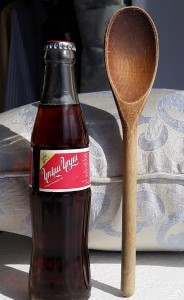 While in Armenia, I brought home a bottle of Coke with Armenian lettering.
While in Armenia, I brought home a bottle of Coke with Armenian lettering.
Take a moment, right now to recall something you acquired within the last week or two.
What was it and why?
I bought a pair of crop pants on sale at Costco. Why? They were a compromise between too-short shorts and pants. I’ll just roll up the legs to just above my knees and they’ll be perfect.
Then we hold onto the STUFF we acquired.
We hold onto a reminder of a loved one.
I still hold onto The Wooden Spoon. If you haven’t yet, read the story in STUFFology 101.
We think we’ll need it, later.
We paid a lot for the item and can’t justify letting go of it.
Yep, these are some of the reasons we accumulate clutter.
Long after the reason for acquiring an item has passed, we’re still holding on.
What’s with that?
Oh, I’m not criticizing. I do it too!
As a STUFFologist, I make it my business to define my own clutter, but it takes time to get rid of STUFF.
Deciding what we hold onto defines who we are. Our STUFF makes statements about how we see ourselves.
WOAH, you say! Not all my stuff!
I agree.
Over time, we try to find containers to store the stuff that we don’t need, right now.
And even though it’s out of sight, we remain tethered to our Stuff.
I still have recordings and videos from over a decade and a half ago when my husband and I taped my father while he lived with dementia. He couldn’t make sense of his image on TV and insisted we call the station manager because there was a guy that looked just like him on TV. I thought about making a video to help people understand what it’s like living with dementia. Enough time has passed. There are far better videos available, today.
I am ready to let go.
Nooo, you say. You can get them converted by a service!
Again, retrieving all the videos and audio recordings and then determining which items to convert, takes time. However, it bears mentioning, we don’t have to reduce ourselves to an all-or-nothing choice. I may choose to preserve at least one of those memories.
Still, I don’t want to live through another Station Fire to be forced into rush decisions about what I keep and what I let go.
An earthquake? A fire? A flood?
I am letting go of things now, so I don’t leave others with the burden of getting rid of my STUFF.
I Start by defining the clutter in an area, Trust in the process, Understand the cyclical nature of clutter, Focus for a time, and Finish getting rid of my S.T.U.F.F. in that area.
These mini successes encourage me to keep going whether it’s getting through emails, a pile of magazines, books, paperwork, and more. I think of Queen’s refrain: I want to break free. It’s not easy, but if we keep at it, we will break free of clutter.
The older I grow, the less STUFF means to me.

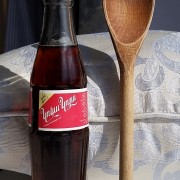
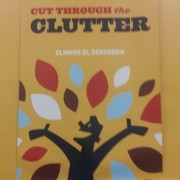
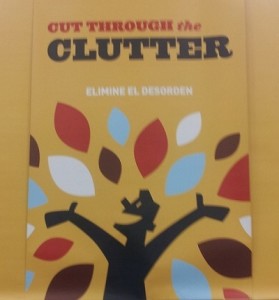
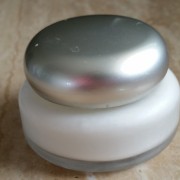
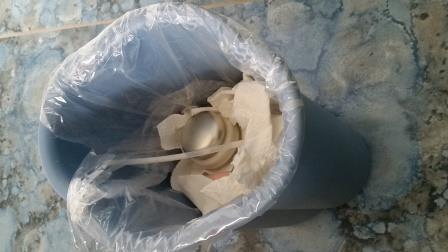 I tossed the jar of night cream.
I tossed the jar of night cream.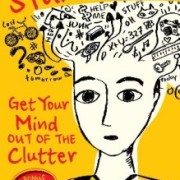



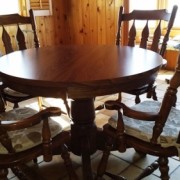
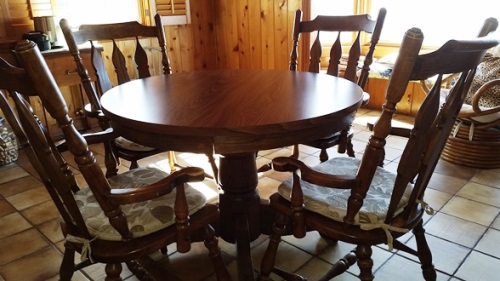 You may recall reading the part in
You may recall reading the part in 
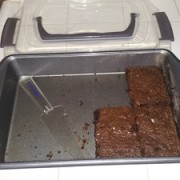
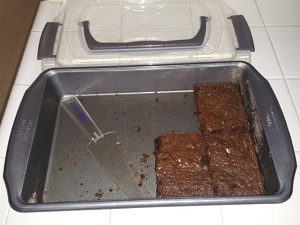
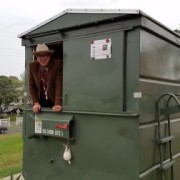
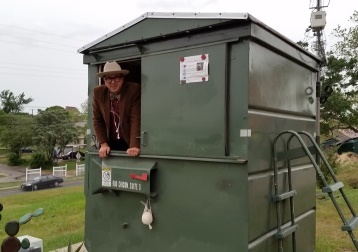
 I was curious about his childhood. He recalls trying to arrange Legos in ways that reflect principles of feng shui. He remembers most horizontal surfaces filled with stuff. In STUFFology 101, there’s a reference to tilting horizontal surfaces to prevent the accumulation of POOP (Piles of Overwhelming Paperwork).
I was curious about his childhood. He recalls trying to arrange Legos in ways that reflect principles of feng shui. He remembers most horizontal surfaces filled with stuff. In STUFFology 101, there’s a reference to tilting horizontal surfaces to prevent the accumulation of POOP (Piles of Overwhelming Paperwork).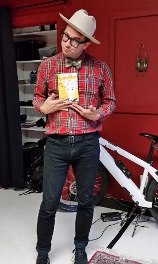 By letting go of things we often think are necessary, he has created a life of freedom, flexibility, and fun. For example, he and his girlfriend/writer,
By letting go of things we often think are necessary, he has created a life of freedom, flexibility, and fun. For example, he and his girlfriend/writer, 
